Christian Ditter’s 2024 film The Present takes viewers back in time to explore a family attempting to rewrite their future. Starring Isla Fisher and Greg Kinnear as parents Jen and Eric on the verge of divorce, the movie follows their three children—eldest daughter Emma, son Max, and youngest son Taylor—who discover he can manipulate time with their grandfather’s antique clock.
Nonverbal autistic boy Taylor becomes especially distressed by his parents’ plans to separate. When a mysterious clock arrives at the family home, young Taylor learns he can turn back time by winding its large brass hands.
Seeing a chance to correct the mistakes of one dramatic day and change his parents’ minds, Taylor enlists siblings Emma and Max to help devise a scheme. Repeatedly looping the same dozen hours, the kids launch hilarious hijinks and heartfelt interventions to save their family from splitting apart.
Through its playful reimagining of the classic “Groundhog Day” time travel premise, The Present reminds us of the eternal appeal of second chances. Ditter’s film reflects on what really matters most with humor and heart, providing a feel-good experience perfect for the whole family.
Troubled Times for the Diehl Family
The Present delves into the highs and lows of family relationships through its focus on the Diehls. Jen and Eric seem ready to call it quits on their marriage, devastating their three kids. As the parents prepare to drop the divorce bombshell over dinner, youngest son Taylor discovers a way to change his family’s fate.
Isla Fisher and Greg Kinnear bring nuanced performances as Jen and Eric. Though they clearly care for each other, their relationship shows signs of fading passion and underlying resentments. Conflicts over issues like Eric’s smoking threaten to overwhelm their love. As tensions mount heading into the pivotal dinner, it seems this couple has truly lost their way.
Eldest daughter Emma, played vibrantly by Shay Rudolph, adds teenage turbulence to the mix. She’s battling her own doubts and desires as a young woman coming of age. Emma also struggles to be a mediator between her siblings and parents. Meanwhile, Mason Shea Joyce portrays middle child Max, a mostly quiet boy wrestling with emotions he doesn’t fully understand.
But it’s Taylor, the autistic youngest son played wonderfully by Easton Rocket Sweda, who becomes the film’s heart. Nonverbal and sensitive, Taylor senses most strongly that his family needs to stay together. When he discovers the magical clock’s powers of time manipulation, Taylor finds a way to take charge and quietly tries saving his parents’ relationship through hilarious repeated attempts.
As the story progresses, each family member gets drawn deeper into Taylor’s looping, time-bending scheme. We see the different challenges they each face and how their multiple day recursions impact their perspectives. The film offers moving glimpses into the sheer love and devotion children feel toward their parents, even when difficulties abound. It celebrates the heartwarming bond between siblings supporting each other through life’s ups and downs.
Perspectives on Family Ties and Time Travel
At its heart, The Present is exploring what family means and how far we’ll go to hold it together. When Jen and Eric announce their separation, young Taylor simply can’t accept it. Through his discovery of the magical clock, Taylor seizes control of time itself to rewrite his family’s destiny.
Each rewind offers a new chance to address the flaws straining Mom and Dad’s bond. The kids try anything from fixing past fights to orchestrating a romantic do-over. But their well-meaning schemes often backfire in humorous ways, showing how complex real relationships are. Under the fraught surface lay deeper troubles, demonstrating how divorce arises from a knot of issues rather than single events.
As Taylor loops the day endlessly, we glimpse the inner turmoil divorce brings innocent children. They just want the stability and joy their parents’ love provided. The film underscores the heartache of seeing a family fracture and the fierce love compelling Taylor to defy reality’s rules.
At the same time, the time manipulation enables fascinating perspectives on the nature of time and change. Like so many before him, Taylor believes he can fix the past and avoid unfolding hardships. But constantly reliving the same moments reveals how unpredictable outcomes remain no matter one’s preparations. Some wounds simply run too deep to patch overnight.
By the end, Taylor comes to understand the resilience of the family unit despite life’s difficulties. Sometimes the answer isn’t rewriting the past, but adapting to new circumstances and forging ahead together through shared joy. Although the future holds uncertainties, love remains to comfort and strengthen them every step of the way. The Present celebrates the indomitability of family ties that transcend even time itself.
Making the Most of Time’s Loops
Director Christian Ditter faced the challenge of crafting a story around endless repetition, yet he ensures The Present keeps viewers engaged through its deft balancing of comedy and emotion. His skilled handling of time loop mechanics keeps revelations surprising despite scenarios looping endlessly. Ditter mines humor from the kids’ schemes backfiring in new ways while also creating poignant moments as the family works through underlying issues.
Central to the film’s success are Greg Kinnear and Isla Fisher, who imbue Jen and Eric with recognizable humanity. Their sometimes volatile interactions feel authentic, and small gestures show lingering affection beneath frustrations. As loops continue, we see subtle shifts indicating growing understanding. Kinnear and Fisher bring layered depth to even repetitious scenes.
Young actors Easton Rocket Sweda, Shay Rudolph, and Mason Shea Joyce hold their own among the pros. Taylor in particular carries complex burdens, yet Sweda makes his character’s quiet resilience profoundly moving. The siblings also find comedic gold in their characters’ quirks. From Emma’s rebelliousness to Max’s accidental sabotage, the kids feel authentic in their imperfections.
Ditter ratchets up hijinks skillfully to release story tension. Zany hijinks like accidentally drugging a marriage counselor leave us laughing one loop only to appreciate new nuance the next. Repetition sparks more laughs as antics increase in scale, from meddling in sports to faking deaths. Yet Ditter balances this with sincerity to explore deeper bonds between misunderstood characters like Taylor.
The Present proves even a worn-out concept like time loops can engage if placed in capable hands committed to growth, humor, and heart. Ditter and his excellent cast make the most of their time, crafting a fun yet poignant story about the resilience of family love.
Finding the Right Rhythm
Bringing a time-loop story to life presents unique challenges, but cinematographer Benjamin Kracun rises to the task with a visual style well-suited to The Present’s tone. Clever techniques keep days distinct despite constant repetition, like a slight color shift whenever the clock rewinds. Transitions flow seamlessly between family members’ perspectives as the narrative progresses.
Complementing the film is its upbeat retro soundtrack. Composer Lyle Workman crafts a score with just the right mix of charm and humor, accenting hijinks without drowning out more poignant moments. Standout musical choices like Harry Styles and Obama cameos are perfectly integrated for maximum laughs. Layered acoustic guitars lend an enduring warmth to scenes of deepening connection between Jen and Eric despite circumstances.
Viewers may barely notice these contributions to the experience, yet both prove invaluable for maintaining engagement throughout constantly rewound loops. Kracun maintains interest through dynamic angles and shots emphasizing each character’s growing understanding. Workman allows space for vulnerability between characters while punctuating plot points with perfectly-timed beats of joy. Together they breathe life into a potentially gimmicky premise, keeping runtime feeling fresh as revelations build upon revelations.
Overall, The Present achieves that rare harmony where technical elements feel seamlessly in service of story and emotion rather than showcasing themselves. By prioritizing mood over flash, cinematography and score elevate time-loop hijinks into a meaningful exploration of perseverance in the face of relationship challenges we all face. Their synergy leaves us rooting for this family’s happily ever after against any odds.
Wrapping Up With The Present
By now you’ve gotten a good sense of The Present’s charms and flaws. At its best, the film entertains with clever hijinks as children test boundaries manipulating time. We can’t help cheering their perseverance against all odds to keep parents together. Though far from perfect execution, its heart lies in the right place celebrating family bonds.
Where storyline or characters fall flat, the film remains an enjoyable way to pass couple hours with lighthearted laughs. Time travel mechanics give excuse for bloopers played for fun rather than drama. Even when plans backfire, kids’ spirit shining through makes their struggle undeniably endearing. In the end, for all the nonsense along the way, the message of family’s importance rings clear.
While not revolutionary cinema, The Present delivers what popcorn entertainment should—amusement without taking itself too seriously. Jay Martel’s script sees humor in the repetitiveness of reliving the same day over, mining comedy from even the messiest twists of fate. If you’re in the mood for light viewing bringing smiles, its heartwarming finale stays true to purpose. By affirming the value of parents’ love for children, this present proves one to treasure however gift is wrapped.
The Review
The Present
While not without its flaws, The Present delivers lighthearted entertainment through its heartwarming exploration of family perseverance against challenging times. Its time-loop premise brings humor to children's earnest efforts strengthening their parents' bond, and its positive message of sticking together despite life's hurdles gives this film an enduring charm.
PROS
- Heartwarming message about the importance of family
- Clever use of time loop premise for comedy
- Endearing performances from a young cast
- Uplifting finale affirming power of parental love
CONS
- Uneven pacing and execution at times
- Adult characters not as fully realized
- Conclusion abandons promising plotline
- Humor falters when veering too broad
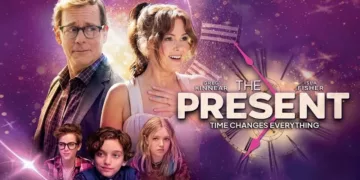







































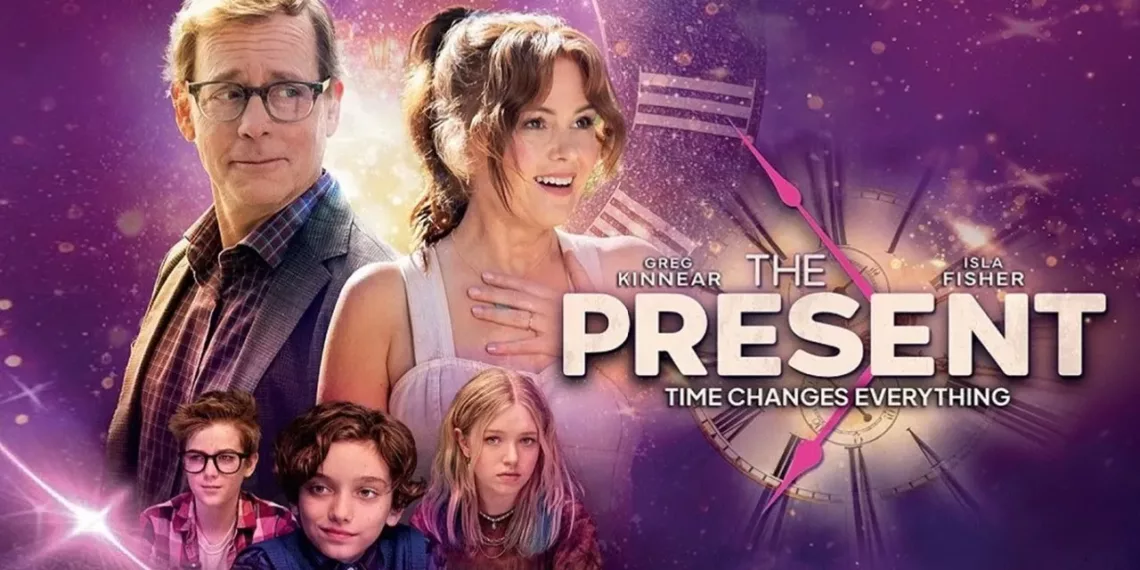
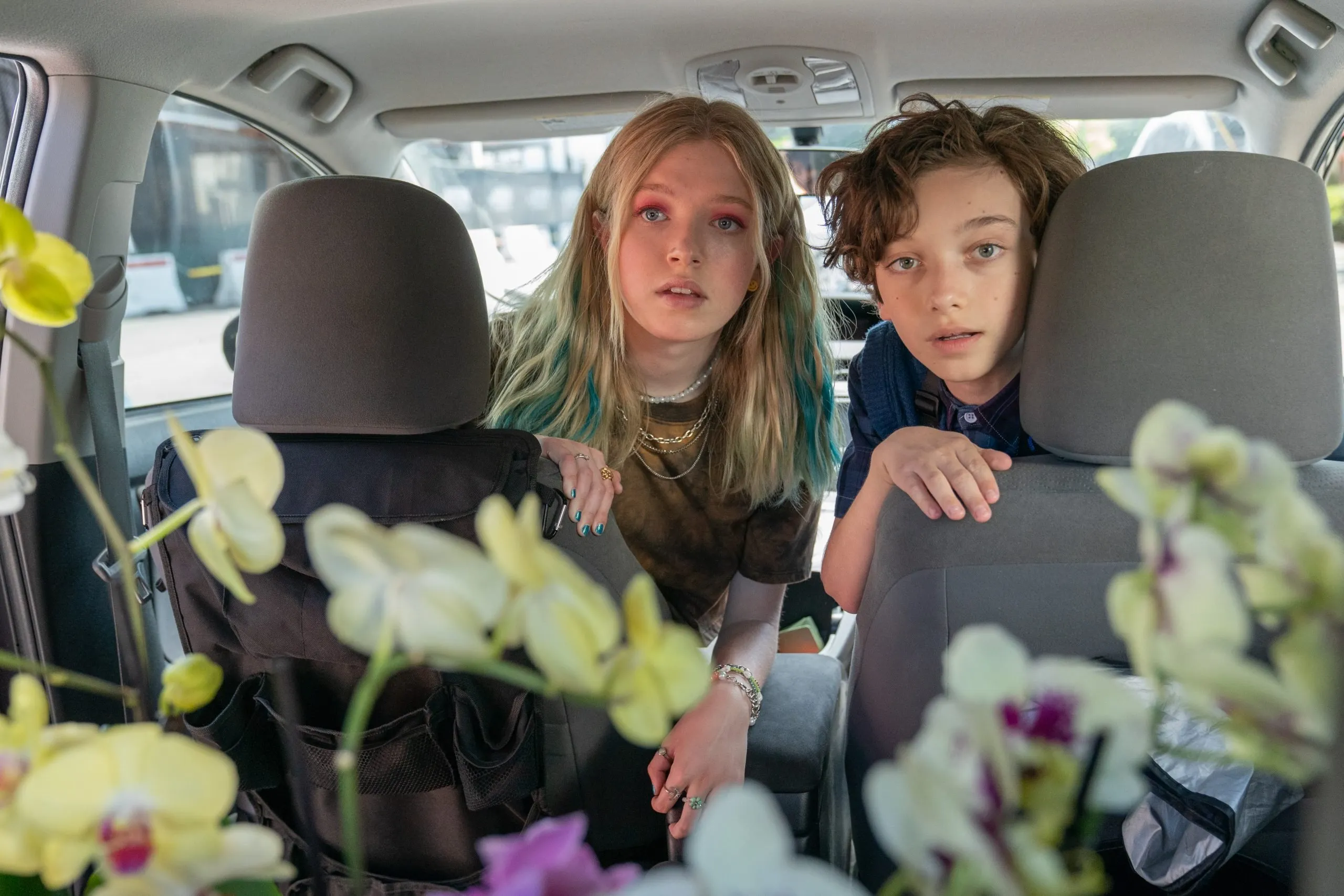
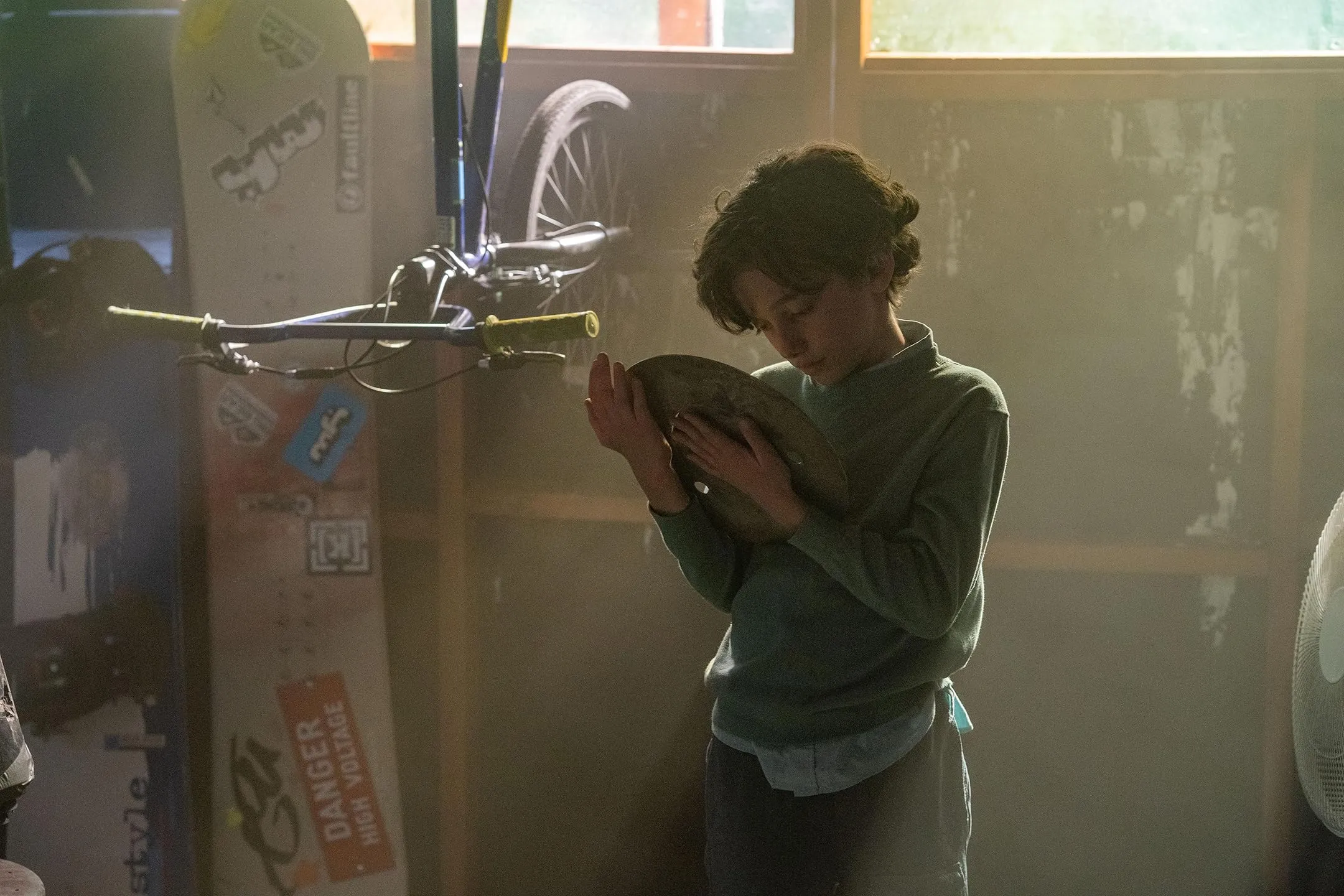
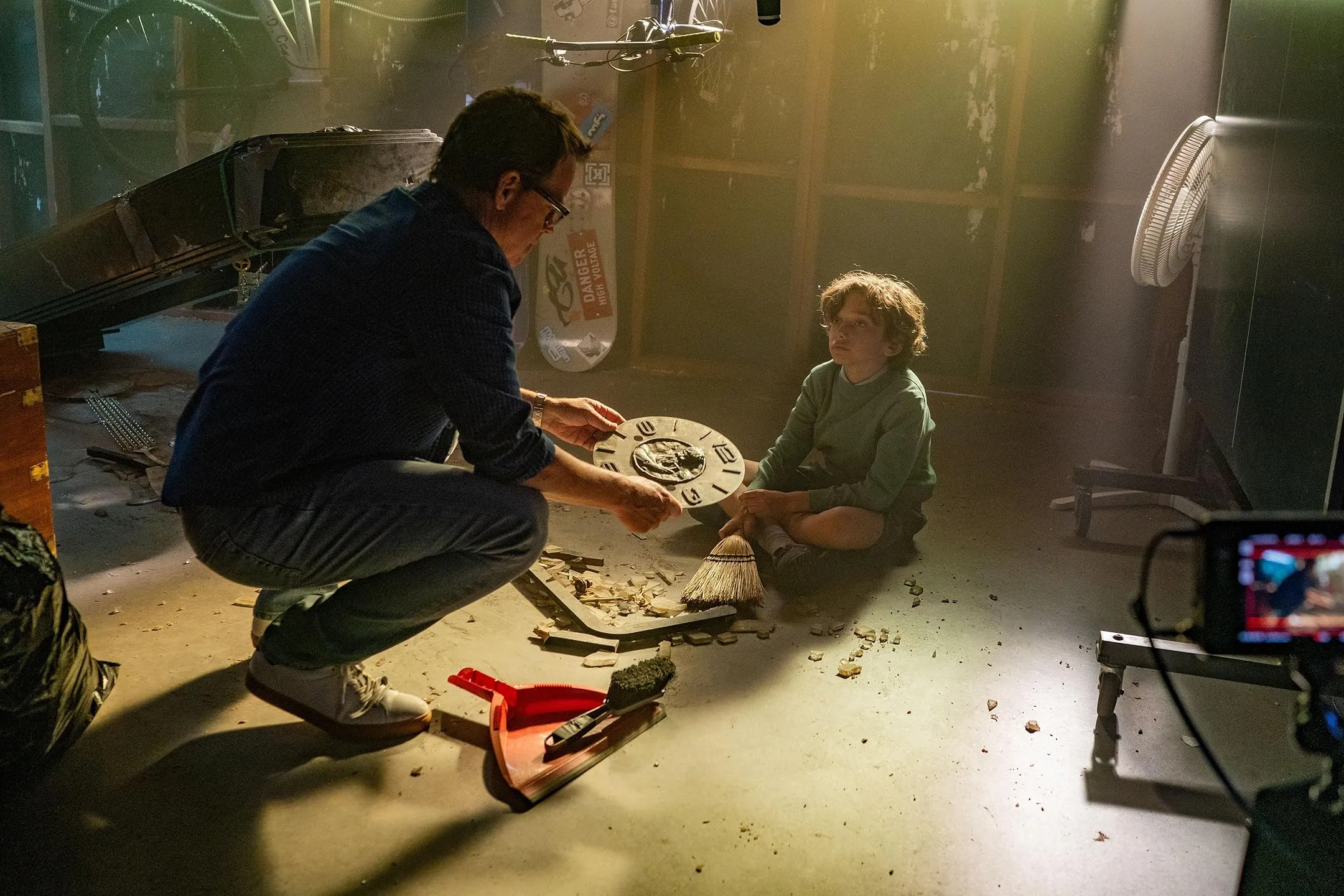
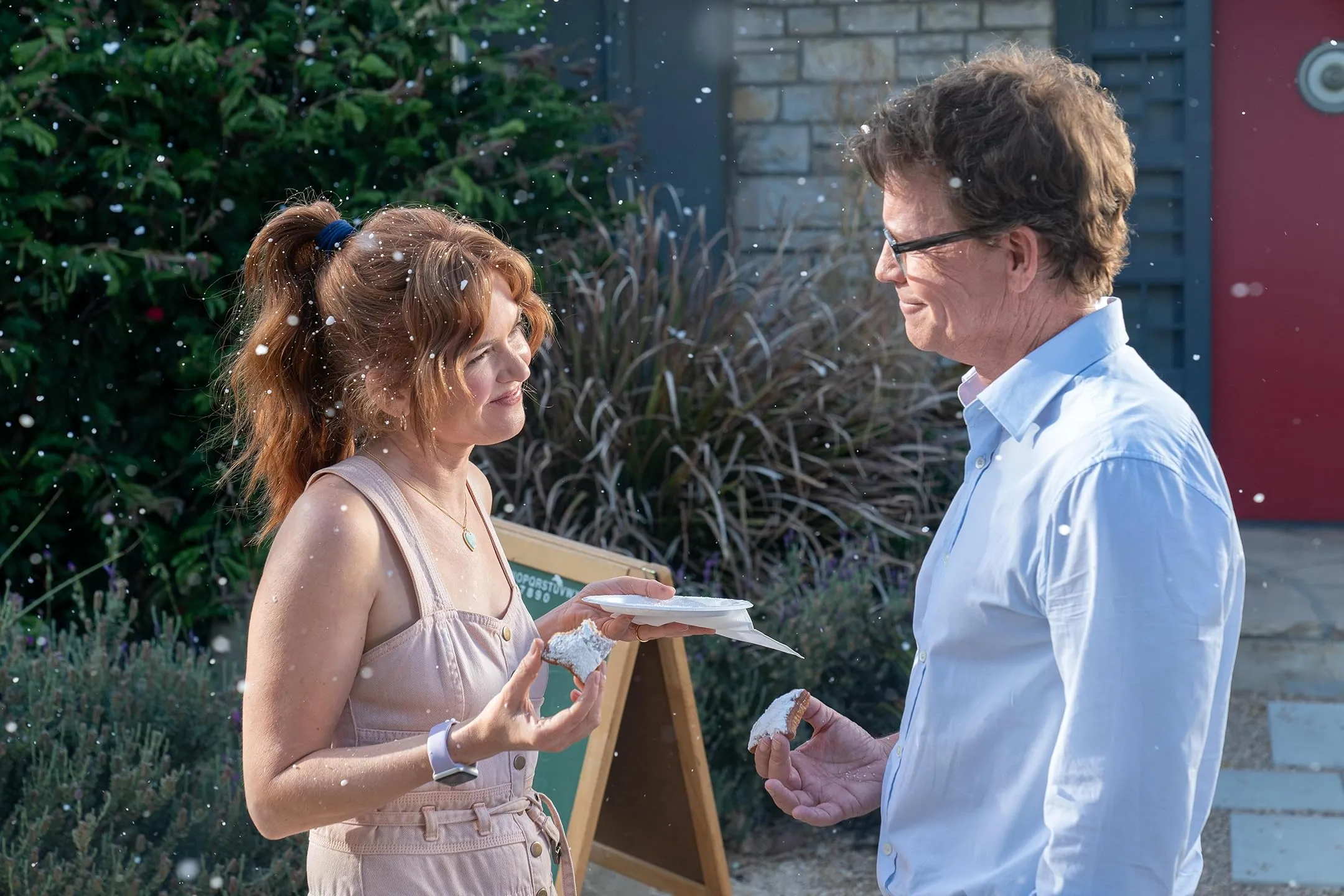








Discussion about this post